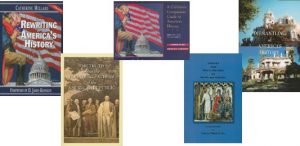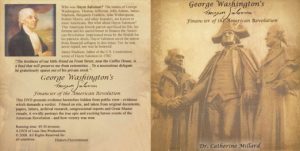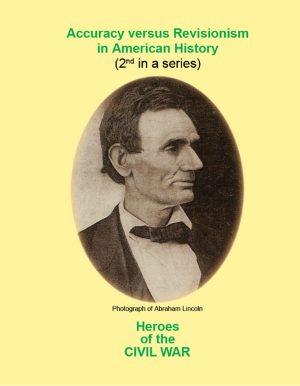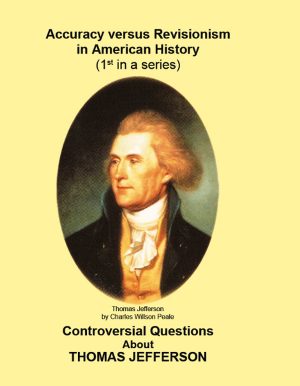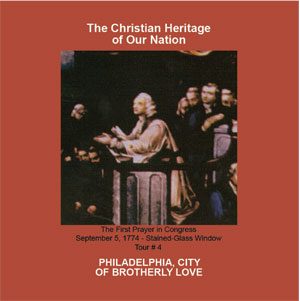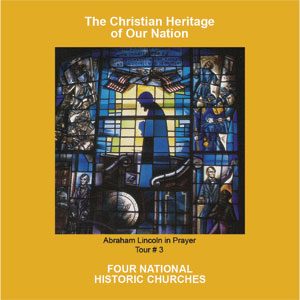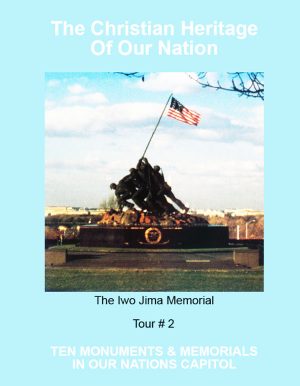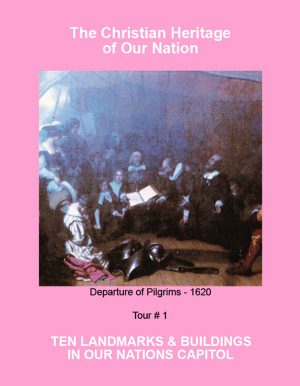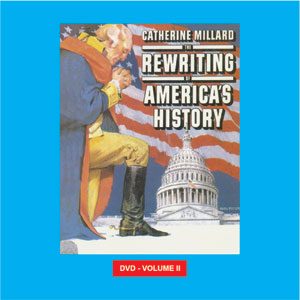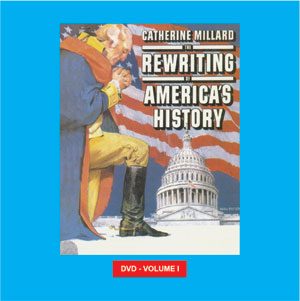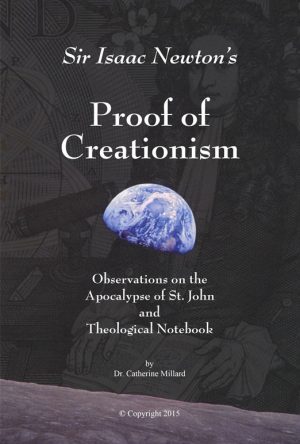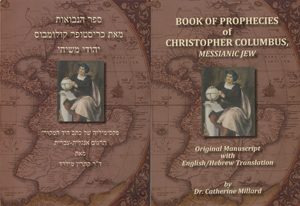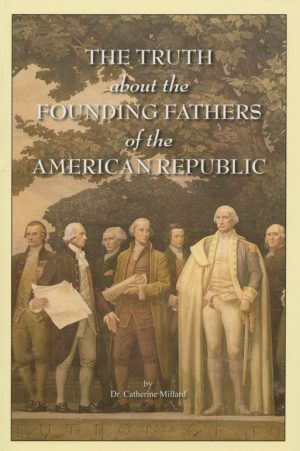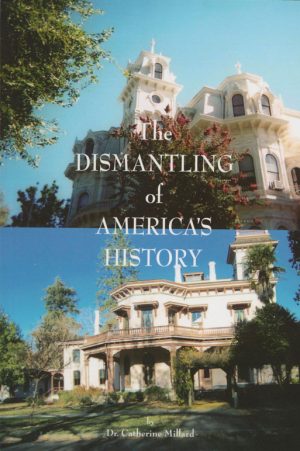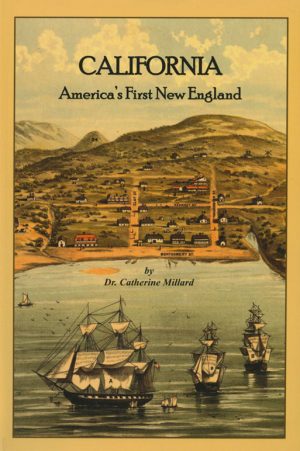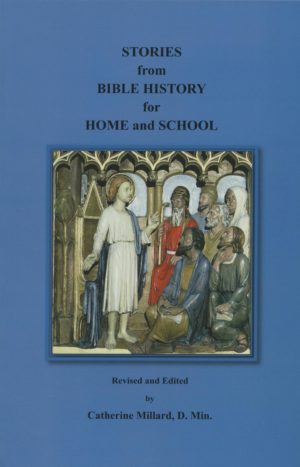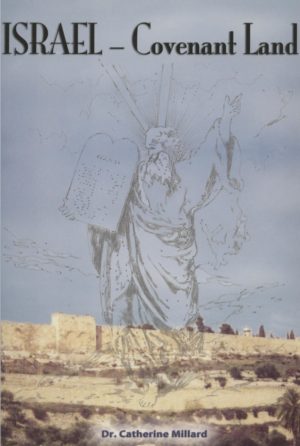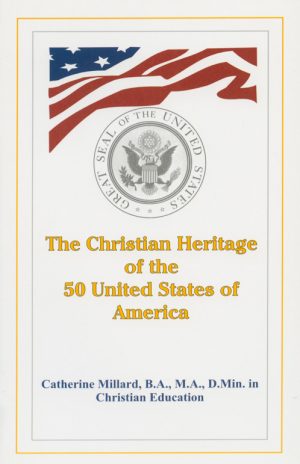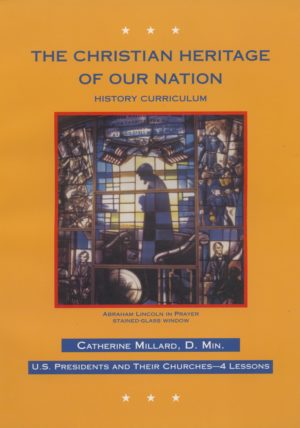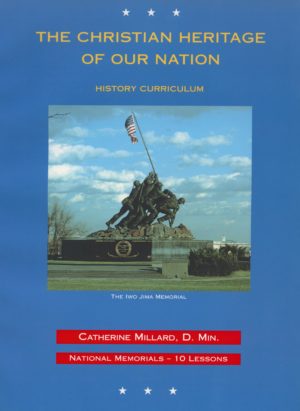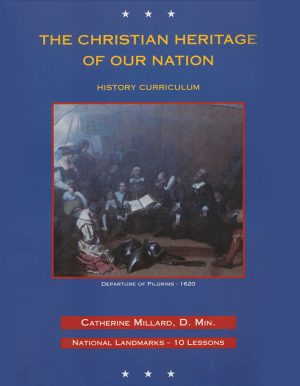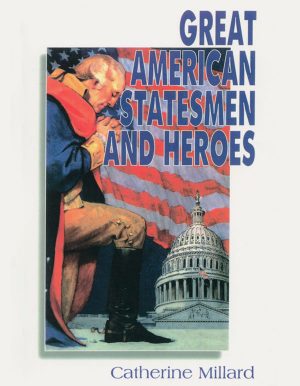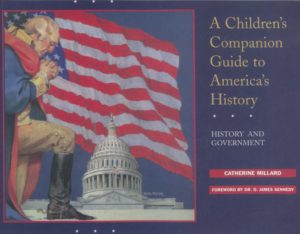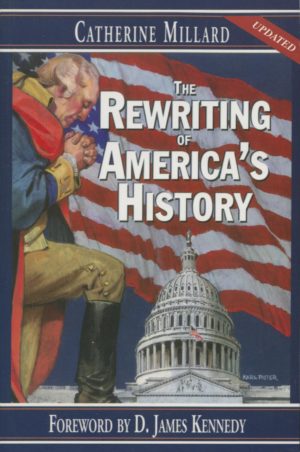An 1888 article in The Resources of California describes General John Bidwell’s Mansionas “the gem of California”, in these terms,
The Bidwell Mansion stands central on Rancho Chico, and adjoins the city, on Chico Creek, in the midst of two hundred acres of orchard and ornamental grounds, with the gardens, conservatory, deer park, choice fruit and flower gardens. Nothing can excel the loveliness and charming beauty of these mansion grounds, as there has been nothing wanting in intelligence, art, science, refinement, good taste and money, to make it the gem of California. The mansion was commenced in 1865 and completed in 1868, just prior to the General’s marriage. It is 51 by 54 feet, besides kitchen, etc. It has three hundred feet of wide veranda surrounding the lower story with a wide piazza over the carriage drive, similar to that of the White House in Washington. Mr. H. W. Cleveland, noted of New York, was the architect.
A Biographical Sketch is then given of General John Bidwell, as follows:
It is a greater task to give even a brief biographical sketch of such a man as John Bidwell, than to write a complete life of an ordinary man. There are men who have lived the lifetime of other men in a single year. Such a man is the subject of this sketch – the father of Chico; the model farmer of California; the proprietor of one of the most princely domains in this country – the world-famed Rancho Chico; one of the earliest California pioneers; an explorer; elected member of the first Constitutional Convention in Monterey; Senator in the first Legislature of California; Brigadier General of California Militia; member of Congress from ’65 to ’67, and candidate for Governor of California on the non-partisan ticket; a Christian. A philanthropist and benefactor, Gen. Bidwell is possessed of ceaseless and untiring enterprise, with a large heart, yet tender as that of a child, with a powerful and well-balanced brain; a man of great reading, high culture and refined taste, he seems to possess a knowledge of mankind, almost super-human. His influence over those he comes in contact with is wonderful He was born a leader, with a splendid physique, commanding and dignified in appearance, he is the same uniformly, in business and pleasure, in public life and in the domestic circle; a gentleman in the truest and largest sense of the term. Such as have studied the life of General Washington carefully, are reminded the more they become acquainted with General Bidwell, of the Father of his country, in more respects than one, yet there is one great difference, General Washington inherited his great fortune, while General Bidwell has been the sole architect of his vast fortune.
…General Bidwell is a veritable member of nature’s nobility, morally, intellectually and physically. His face shows great strength of character and indomitable will. He is considerate and kind, ever the friend of the poor and unfortunate. In business he is very methodical and careful, yet shrewd and far-seeing, otherwise itwould be impossible for one man to manage the score or more branches of business found upon this immense estate…
In 1849, at the age of thirty, he was chosen a member of the first Constitutional Convention of California at Monterey, then the Capital. The same year he was elected to the Senate of the first Legislature of California. In 1850 he was appointed one of the Commissioners, by Governor Burnett, to convey to Washington City, the block of gold-bearing quartz, as California’s contribution to The Washington Monument. In 1855 he was again a candidate for the State Senate. In 1863, he was appointed by Governor – and now U.S. Senator, Leland Stanford, to command the Fifth Brigade, California Militia, serving till the close of the Civil War. In 1864, he was a delegate to the Baltimore National Convention, which re-nominated President Abraham Lincoln for the Presidency. In the same year, he was nominated and elected to the thirty-ninth Congress. Two years later, he tendered a re-nomination, but declined. In 1875, he was nominated for Governor of California on the Anti monopoly or Non-partisan State ticket. April 4, 1888, he was chosen to preside at the State Prohibition Convention.
General Bidwell’s Domestic Life
A devotedly Christian gentleman – a strong temperance man – abstemious in all his habits, commanding the respect of all who know him, he is humble, simple, and loving as a child. Tender, kind and benevolent to a fault, he has often made the people of the city of Chico glad, by his public acts of charity, and liberal contributions, and his private acts in individual cases, in relieving the wants of the poor and unfortunate ones, which he seems to be always looking for, can be numbered by the hundreds. He is a Presbyterian, always refusing all official positions in the church, he has been the father of his church, and for many years was Superintendent of the Sunday school therein, since which he has conducted an interesting class of young men. He is methodical in his habits, prompt in his appointments, certain to fill his engagements, exacting the same from others, and devotes a certain portion of the time to office work in his large and beautiful office in his mansion; another portion to the business office in the city, only a few hundred yards distant, in which his book-keeper, cashier and clerks are employed; another portion in visiting his various farms, or divisions of industry, into which his mammoth ranch is subdivided; another portion in entertaining his numerous guests; another, in literary pursuits, never omitting the greater duties of husband and proprietor of one of the most magnificent and charming homes to be found in this country.
General Bidwell’s Benefactions
General Bidwell has acquired the sobriquet of “The Father of Chico.” When he laid out the City of Chico, on his Rancho Chico, he donated wide streets, blocks of ground for public parks and ornamented them with trees, etc.; lots for church and educational purposes and has since contributed largely, in many ways to build up this pretty “City of Roses.”
The Presbyterian Church
In the early history of Chico, the Presbyterians wanted to erect a church. The Trustees got up a subscription paper.When completed, the edifice cost about$16,000, Bidwell paying all the bills except the $2,500 subscribed, thus giving$13,500 besides the lot on which the handsome brick church stands.
Chico State Forestry Station
When the State Forestry Commission desired a site for a Forestry Station in Northern California upon which to experiment, General Bidwell stepped forward with his accustomed promptness, and donated to the State thirty-seven acres of exceedingly rich alluvial land, a portion of it covered with native trees, near Chico Creek, about one and a half miles from his mansion and the City of Chico. It is a very beautiful tract.
Northern State Branch Normal School
At the last session of the State Legislature, an act was passed for the establish- ment of a State Normal School, to be located north of the city of Marysville and a Commission appointed of which the Governor was ex-officious chairman, to select a site for this institution…When it was reduced to two places, Red Bluff and Chico, the people of Chico were in a dilemma – in a state of wild excitement. General Bidwell was in Europe! What were they to do? Cablegram after cablegram flashed across the Continent and through the Atlantic and vice versa. What is the matter? Chico and London are talking together. “Great interests are at stake!” Will the beautiful little “city of roses” get the State Normal School? The people of Chico said: We must not lose it! We cannot afford to lose it! But we can’t secure it, with- out the aid of General Bidwell! What will he do? Will he meet the emergency? Yes, he gave eight acres of the choice tract between his mansion and the city – namely, his Cherry Orchard. This was enough, and the Northern Branch State Normal School is located there, (now California State University)1…
The John Bidwell Memorial Window
A magnificent stained-glass window, situated in prominence within the foyer of the Bidwell Presbyterian Church, has the following inscription:
“This memorial window honoring General John Bidwell was first placed in the Presbyterian Church of Chico when it was located at the North East corner of Broadway and Fourth Street. It was set in place on Thursday, April 4th, 1901. The Reverend Willis G. White, pastor of the Church, presided at the ceremony of consecration and accepted the gift from friends of John Bidwell who wished the window to be a continual reminder of this honored pioneer, agriculturalist, philanthropist and humanitarian. The window was designed by Mrs. Mary Ingalsbe Bradford, a western artist of distinction from San Francisco, and was constructed by the firm of Ingerson and Glaser of the same city. The designer’s use of opalescent glass rather than stained glass was unique at the time and gives a delicate and unique effect. In planning the memorial, Mrs. Bradford must have been deeply inspired by the man it was to honor. Leaves of the walnut tree are shown in the blue canopy at the top of the window to signify that he was engaged in planting these trees shortly before his death. In the large central panel appear two steep mountain cliffs, and through the gorge between them, one looks westward into the distant grain-covered valley below. These mountains represent the strength of John Bidwell’s character. Upon the side of the cliff grows a rugged pine tree with its roots grappling the rocks, typifying sturdiness. The golden valley suggests the fields on which he built his Rancho del Arroyo Chico, and the sunset sky is emblematic of the west, which he loved, the home where he lived and died. In the lower panel are symbols which tell more of his life. The Shepherd’s Crook signifies his leadership, the Pilgrim’s Staff and the water gourd remind us of his life as a pioneer, and the broken wine glass suggests his belief and work in the cause of temperance. The Scripture which is arranged at the sides of this lower design reads: ‘For whoso- ever shall give you a cup of cold water to drink in my name, because ye belong to Christ, verily I say unto you, he shall not lose his reward.’ Such was John Bidwell, a man to match God’s mountains.”
The Indian Village
After her beloved husband’s death in 1900, Annie E.K. Bidwell continued their great work for Christ, as the original Minutes of the Chico Presbyterian Church testify. Her diary entry reads, “Enter this solemn record, that at 2:30 this PM, my Beloved left us for his home with God, and so suddenly and peacefully that we knew not that he was leaving us…” She continued faithfully sponsoring, helping, teaching, nurturing and protecting the Mechoopda tribe at the Indian Village on Rancho Chico, a few minutes’ walk from the Bidwell mansion. In 1905, she deeded this land – about 28 acres, for the permanent use of the Indian residents.
A 1907 article in the Chico Record gives an eye-witness account of Annie Bidwell’s admirable work among the Mechoopda Indians:
The education of the Indians was the big problem that confronted Mrs. Bidwell when she arrived in 1868 and that she succeeded admirably is a lasting tribute to her long labors and persistence. The men at this time could speak a little English, they having acquired this by association with the whites, but the women and children were unable to converse in the language at all. In 1875 the first work of instructing the men, women and children was begun, school being held in the General’s office in front of the present mansion…School was held three times a week and the Indians learned rapidly considering the obstacles they had to overcome. This good work was continued for some time under the personal supervision and instruction of Mrs. Bidwell, until later years when the children were allowed to attend the public schools. That the gradual training of the people has been a benefit is evinced at the present time, for there are now a number of Indian pupils in the public schools and one of the young ladies for a time attended the Chico State Normal. The religious education of the Indians was not neglected and at an early date a rude chapel was erected near the present Bidwell mansion. Here they were taught to read the Bible and instructed in the Christian morals. The first chapel soon became too small and in 1878 the present one was erected at Indian Village, where the Indians had been given grounds for their homes, at their own request, and Mrs. Bidwell became their pastor, conducting services in the chapel, which was crowded to the doors each Sunday… 2
To learn more, click here.
_____________________
Bibliography:
1
The Resources of California. San Francisco, 1888.
2
Chico Record. Special Edition, June, 1907.
